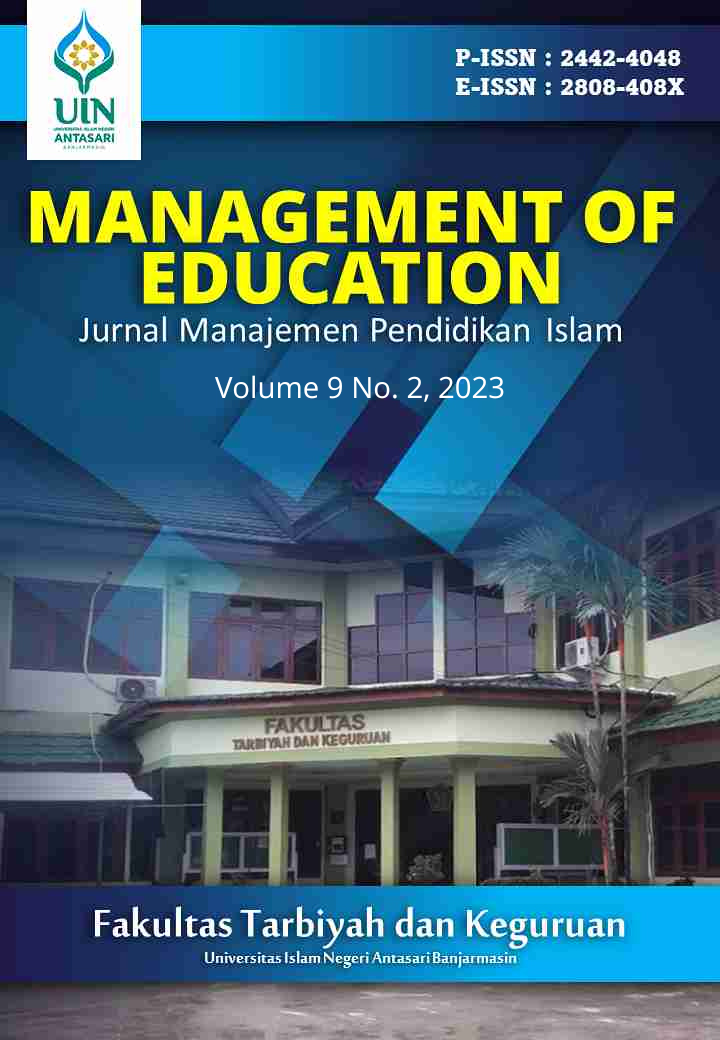IDENTIFICATION OF COMMUNITY PERCEPTIONS OF THE SOCIO-ECONOMIC CONDITIONS OF WOMEN WORKERS IN PLANTATIONS
DOI:
https://doi.org/10.18592/moe.v9i2.10789Keywords:
female workers, plantation workers, perceptions, housewives, social communityAbstract
Women workers who are called daily workers in the estate usually get a bad rating because of the type of work that is hard and not optimal in carrying out their roles in the household. However, this assessment must be correct because there are many factors that cause women to work to increase family income. This study aims to determine the perceptions of the people in Greenan Village towards women daily laborers who work for plantation companies in Greenan Village. This research is a quantitative descriptive study with a sample of 30 informants, 15 people from the community inside the estate and 15 people from outside the estate. The results show that the community has a positive and supportive perception of women (housewives) working in the estate as daily labourers, even though it looks like their work is rough, heavy and full of risks such as fertilizing, chemistry, etc. but it is known that they do it voluntarily, want to help the family economy, improve family welfare. Their husbands don't forbid them because their roles in the household as mothers and wives are not neglected. Even with work, their social interactions in the community are still good, so that the negative opinion that is usually received by women workers in the plantations is refuted.References
Agustina, E. (2019). Factors that make women work as laborers in oil palm plantations (Case Study of PT. Brahma Binabakti, Sekernan District, Muaro Jambi Regency).
Ahirman, P. (2009). Child development. (On line). Retrieved July 24, 2021, from http://www.authorstream.com/article/antara21-1138856-psikologi-anak-dan-remaja
Central Bureau of Statistics. (2018). Palm Oil Statistics 2018: Indonesia Oil Palm Statistics.
Basrowi, & Juariyah. (2010). Analysis of socio-economic conditions and education level of the people of Srigading Village, Labuhan Maringgai District, East Lampung Regency. Journal of Economics & Education .
Chaplin, JP (2011). Psychology Dictionary. Jakarta: PT RajaGrafindo Persada .
Elizabeth, R. (2008). The Dual Role of Women Farmers in Achieving Household Food Security in Rural Areas. Food Crops Science and Technology, 3(1), 59-68.
Fauzi, Y., Widyastuti, Y., Satyawibawa, I., & Paeru, R. (2012). Palm oil. Jakarta: Independent Spreader.
Irwan, A. (2006). Gender Paran Sangkan. Yogyakarta: Student Library .
Janah, N. (2017). Study of the Book of Gender Equality Arguments from the Al-Quran Perspective by Nasaruddin Umar. SAWWA, 2(2), 167-189.
Jones, P. (2010). Introduction to Social Theories. Jakarta: Indonesian Torch Library Foundation.
Katadata. (2022). Katadata.co.id. Retrieved December 10, 2022, from https://databoks.katadata.co.id/datapublish/2022/10/31/ini-15-komoditas-utama-ekspor-penopang-devisa-indonesia-till-agustus-2022.
Kusumawati, Y. (2012). The Double Role of Tea Picking Women. Community. International Journal of Indonesian Society and Culture, 4(2).
Kusumawati, Y. (2012). The Double Role of Tea Picking Women. Community. International Journal of Indonesian Society and Culture, 4(2).
laing. (2016). The Impact of the Existence of Oil Palm Plantations on the Socio-Economic Conditions of Village Communities in Badak Mekar Village, Muara Badak District, Kutai Kartanegara Regency. Journal of Government Science, 4(2).
Nasaruddin, U. (2000). The Argument of Gender Equality in the Perspective of the Koran. Jakarta: Paramadina.
Rakhmat, J. (2011). Communication Psychology. PT Juvenile Rosdakarya.
RSPO. (2021). Retrieved September 13, 2021, from https://www.antaranews.com/berita/2125202/rspo-pekerja-wanita-di-perkebunan-sawit-perlu-payung- Hukum
Samosir, R. (2017). Women Palm Oil Plantation Workers in Bukit Agung Village, Kerinci Kanan District, Siak Regency. JOM FISIP, 4(2).
Supartiningsih. (2003). The Dual Role of Women, A Critical Philosophical Analysis. Journal of Philosophy, 33(1), 95-115.
Supriatna, A. (2018, September 17). The Suffering of Women Workers in the Palm Oil Fields” (On-Line). Retrieved November 28, 2022, from Di:http://www.Vebma.Com/Wanita/Derita- Buruh-Perempuan-Di-Ladang-Sawit/10930
Susanto, & Effendi. (2018). (Public Perception on the Socio-Economic Conditions Post-Establishment Plantation Company of Oil Palm (Case Study PT. Telen Prima Sawit in Subregency of Muara Bengkal Regency of East Kutai) Journal of Agricultural Agribusiness and Communication, 2(2), 71-178 .
Winarso, B. (2012). The dynamics of paddy field tenure patterns in rural areas in Indonesia. Journal of Applied Agriculture.
Wulandari, P., Malihah, E., & Aryanti, T. (2012). Becoming a Women Migrant Worker. Sociology Journal of Sociology Education, 12(1), 1153-1168.
Downloads
Published
How to Cite
Issue
Section
License
Authors who publish with this journal agree to the following terms:
- Authors retain copyright and grant the journal right of first publication with the work simultaneously licensed under a Creative Commons Attribution 4.0 International that allows others to share the work with an acknowledgement of the work's authorship and initial publication in this journal.
- Authors are able to enter into separate, additional contractual arrangements for the non-exclusive distribution of the journal's published version of the work (e.g., post it to an institutional repository or publish it in a book), with an acknowledgement of its initial publication in this journal.
- Authors are permitted and encouraged to post their work online (e.g., in institutional repositories or on their website) prior to and during the submission process, as it can lead to productive exchanges, as well as earlier and greater citation of published work.









 This work is licensed under a
This work is licensed under a 